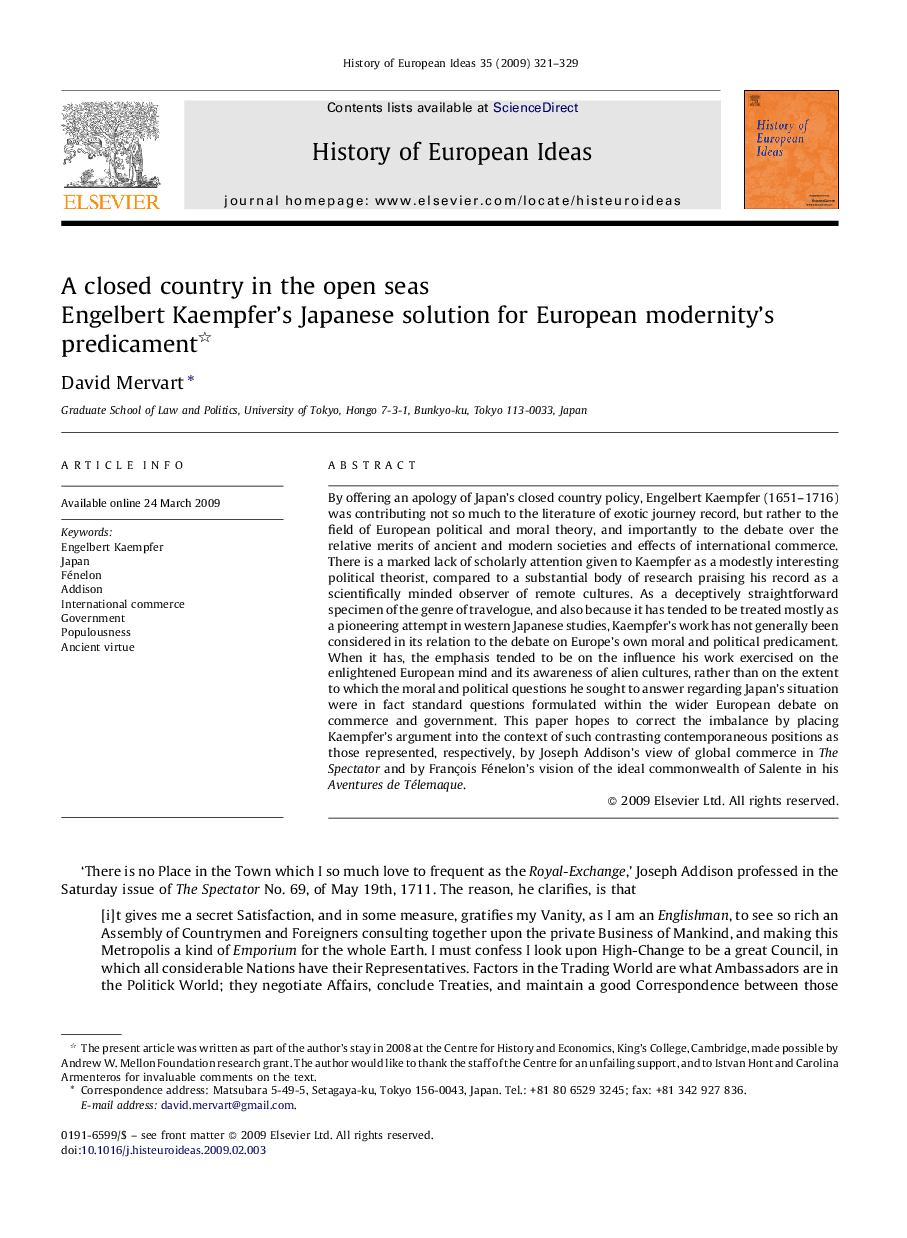| Article ID | Journal | Published Year | Pages | File Type |
|---|---|---|---|---|
| 1159092 | History of European Ideas | 2009 | 9 Pages |
By offering an apology of Japan's closed country policy, Engelbert Kaempfer (1651–1716) was contributing not so much to the literature of exotic journey record, but rather to the field of European political and moral theory, and importantly to the debate over the relative merits of ancient and modern societies and effects of international commerce. There is a marked lack of scholarly attention given to Kaempfer as a modestly interesting political theorist, compared to a substantial body of research praising his record as a scientifically minded observer of remote cultures. As a deceptively straightforward specimen of the genre of travelogue, and also because it has tended to be treated mostly as a pioneering attempt in western Japanese studies, Kaempfer's work has not generally been considered in its relation to the debate on Europe's own moral and political predicament. When it has, the emphasis tended to be on the influence his work exercised on the enlightened European mind and its awareness of alien cultures, rather than on the extent to which the moral and political questions he sought to answer regarding Japan's situation were in fact standard questions formulated within the wider European debate on commerce and government. This paper hopes to correct the imbalance by placing Kaempfer's argument into the context of such contrasting contemporaneous positions as those represented, respectively, by Joseph Addison's view of global commerce in The Spectator and by François Fénelon's vision of the ideal commonwealth of Salente in his Aventures de Télemaque.
